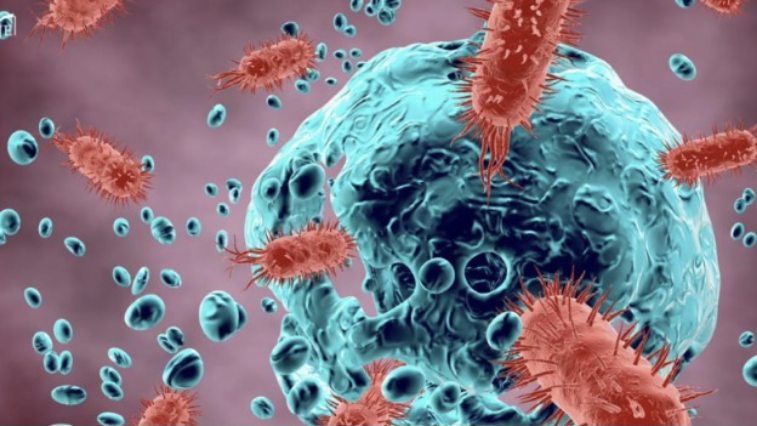
By Tracy Beanz & Michelle Edwards
New research has found that certain medications may affect your gut microbiome for years after you stop taking them. The latest report on how common medications can negatively shape our gut microbiome for decades isn’t a passing detail with little impact. Instead, it is a glaring red flag for how prescription medications might impact our bodies. Yes, what we put into our bodies matters a great deal. But significantly, what we change inside our bodies — how our internal ecosystem adapts and shifts over time — matters far more. We must consider the impact of prescription drugs.
A recent study published in the American Society for Microbiology’s mSystems journal notes that a large sample of over 2,500 people had stool samples tracked alongside their prescription records. The result? Drugs that they may have taken years ago—antibiotics, antidepressants, antipsychotics, beta-blockers, proton-pump inhibitors, benzodiazepines—were shown to leave a lasting mark on their gut ecosystem. Significantly, the change occurred not just while patients were taking them, but long after they stopped. Simply put, these drugs rewired the network of bacteria in their guts, and the effects of that rewiring persisted for years. The study reported:
“We show that past usage of medications is associated with the gut microbiome. For example, the effects of antibiotics, psycholeptics, antidepressants, proton pump inhibitors, and beta-blockers are detectable several years after use.”
From a holistic viewpoint, the study matters because our gut isn’t a passive system. No indeed. Instead, as we’ve previously reported, our remarkable gut microbiome is one of the primary intelligence hubs of our body functions, influencing digestion, immunity, inflammation, and even mood and metabolic health. When medications shift the balance of our gut microbiome, they are not just treating a symptom; they are prescribing a course of treatment. Thus, the drug also alters the patient’s overall health, not always in ways that serve their long-term health. As explained by Martin Blaser, M.D., chair of the Henry Rutgers Chair of the Human Microbiome at the Rutgers Robert Wood Johnson Medical School:
“The microbiome is a collection of organisms competing with each other and with the host, and subject to natural selection. When you add a new food—it favors certain bugs and they crowd out other bugs. Same for a medication.”
The scientists involved in the study describe the microbiome as a collection of organisms that compete, cooperate, and evolve. When the environment changes, whether through food or drugs, that change shifts which organisms dominate, which thrive, and which fade away. There are numerous different ways medications can influence our gut microbiome. “We commonly prescribe things like proton pump inhibitors, which decrease the acid in your stomach,” noted Rudolph Bedford, M.D., adding, “Imagine the bacteria in your mouth then finding its way down to your stomach when the acid is reduced. Then, you have different bacterial flora that develop. You transform the bacterial flora with any medication you take.”
We know that when microbiome diversity drops and inflammation-linked bacteria rise, our body’s resilience declines. And while the study didn’t prove that one prescription equals cancer or autoimmunity, the patterns align with what we see in holistic health, which is that chronic disease often begins with a landscape shift, as brought about, for example, by a prescription drug, not a sudden hit. From a preventative perspective, this means we must reframe how we think about medications. Besides understanding the billions in profits the pharmaceutical company made from the drug, the question is not just ‘can I take this drug?’ But it must include considering ‘what happens after I stop it?’ If a drug rewires our internal ecosystem, we must account for that outcome. The study doctors suggest that if two drugs work equally well, pick the one with the smaller microbiome impact. That mindful consideration is a common-sense stewardship of our body’s internal terrain.
The takeaway is simple and serves as a reminder we can’t afford to ignore. Specifically, the choices we make—especially the ones we swallow—have a direct impact on our long-term health. Drugs we took years ago can still be shaping our internal terrain today. In other words, our remarkable, self-healing bodies are composed of many parts that work together as a whole. Central to proper functioning is our gut microbiome. When surface-level symptoms are treated without considering the long-term impact on our central command, we risk compromising the entire system, causing more long-term harm than short-term benefit. Real health care starts with prevention—not another shortcut pushed by billion-dollar Big Pharma.
Indeed, we must focus on building gut resilience through healthy, local, organic foods and a balanced lifestyle so we’re not reaching for prescriptions in the first place. Likewise, when those prescriptions are absolutely necessary, we must consider the impact on our entire system. The health of our gut microbiome is not an afterthought, and we must understand and respect that by not trading long-term balance for short-term relief. Our health is a long game, and we must treat it like one.








